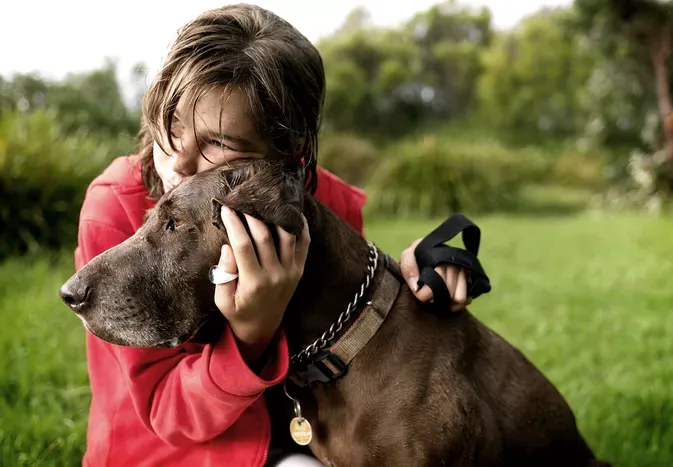How to Know When It's Time to Put Your Dog Down
Updated on 04/26/24

How to Know When It's Time to Put Your Dog Down: A Heartbreaking but Essential Guide
Losing a beloved dog is an incredibly painful experience. When faced with the decision of whether or not to euthanize, pet owners understandably feel torn between their desire to keep their furry companion and the realization that the dog's quality of life may be declining. This guide will provide comprehensive information to help you navigate this difficult decision, empowering you to make the choice that is best for your dog.
Understanding the Signs of Declining Quality of Life
* Loss of Appetite: A dog that consistently refuses to eat or only eats small amounts may be losing interest in food due to underlying pain, illness, or cognitive decline.
* Weight Loss: If your dog is noticeably losing weight despite eating normally, it may be a sign of an underlying medical condition or a decrease in metabolism.
* Changes in Sleep Patterns: Dogs that are sleeping significantly more or less than usual may be experiencing pain, discomfort, or confusion.
* Difficulty Getting Around: Struggling to stand, walk, or climb stairs may indicate joint pain, neurological issues, or weakness.
* Incontinence: Loss of bladder or bowel control can be a sign of urinary tract infections, cognitive decline, or spinal cord problems.
* Lethargy and Loss of Enthusiasm: A dog that no longer seems happy or interested in activities they once enjoyed may be experiencing pain, discomfort, or confusion.
* Changes in Behavior: Increased aggression, anxiety, or withdrawal may be indicative of underlying pain, discomfort, or cognitive decline.
* Medical Conditions: Advanced stages of cancer, heart failure, kidney failure, or other severe medical conditions may necessitate the decision to euthanize.
Assessing Your Dog's Overall Well-being
To determine if it's time to put your dog down, consider the following factors:
* Quality of Life: Evaluate your dog's physical, emotional, and social well-being. Are they still happy and comfortable? Do they enjoy activities they used to?
* Pain Management: If your dog is experiencing significant pain that cannot be effectively controlled with medication, euthanasia may be a compassionate option.
* Financial Burden: Euthanasia can be expensive, and ongoing medical treatment costs may become prohibitive for some owners. Consider your financial situation when making this decision.
* Your Personal Feelings: While it's important to put your dog's well-being first, your own emotions should also be acknowledged. Take time to grieve and say goodbye if necessary.
Making the Decision with Your Veterinarian
Consult with your veterinarian to discuss your dog's symptoms, medical history, and overall condition. Your vet can provide a professional assessment and help you understand the prognosis and treatment options available. Together, you can make an informed decision that is in the best interests of your dog.
Preparing for Euthanasia
Once the decision has been made, prepare for the procedure by:
* Gathering Loved Ones: Surround yourself with family, friends, or other pet owners who can provide support during this difficult time.
* Creating Memories: Spend special time with your dog, doing activities they enjoy and taking photos or videos to cherish.
* Choosing a Final Resting Place: Decide where your dog will be buried or cremated and make arrangements if necessary.
Remember the Beautiful Journey
While the decision to put your dog down is never easy, remember the years of love and companionship you have shared. Grieve the loss, but also celebrate the life of your beloved pet. Know that you have made the best decision for their well-being, and honor their memory with the love and affection they deserve.
Explore More Pets

Basic Training
Puppy and Baby Introductions

Working Dog Breeds
All About Search and Rescue Dogs

Dog Treatments
Puppy Vaginitis: Signs, Causes and Treatment

Dog Adoption
After More Than 1,200 Days in the Shelter, Coco Goes Home

Basic Training
How to Train Your Puppy to Go on Potty Pads

Hybrid Dog Breeds
The Difference Between a Mutt, Mixed Breed, or Designer Dog?

Dog Treatments
Nail Problems in Dogs

Puppies
7 Reasons Why Two Dogs Are Better Than One